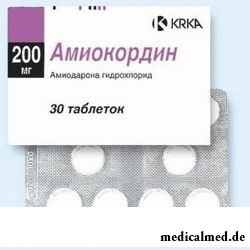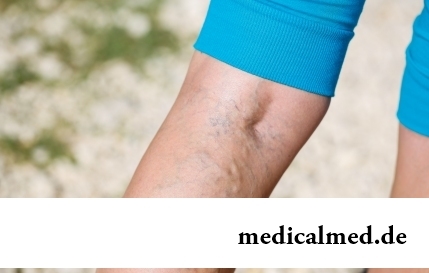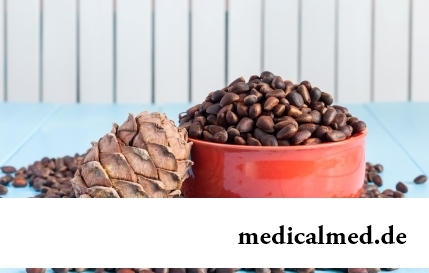





Amiokordin
Application instruction:
 Amiokordin – the antiarrhytmic drug of a class III possessing anti-anginal action.
Amiokordin – the antiarrhytmic drug of a class III possessing anti-anginal action.
Form of release and structure
Amiokordin is issued in the following forms:
- Tablets: biconvex, round, white or white with a cream shade, on one party is available risk (on 10 pieces in blister strip packagings, in a cardboard pack of 3, 6 or 50 packagings; for hospitals – on 100 packagings in a cardboard box);
- Solution for intravenous administration: transparent, slightly yellowish, visible mechanical inclusions are absent (on 3 ml in ampoules, on 5 ampoules in blisters, in a cardboard pack 1 blister; for hospitals – on 20 blisters in a cardboard box).
Structure of 1 tablet:
- Active ingredient: Amiodaronum a hydrochloride – 200 mg;
- Auxiliary components: povidone, magnesium stearate, lactoses monohydrate, silicon dioxide colloid anhydrous, starch corn.
Structure of 1 ml of solution:
- Active ingredient: Amiodaronum a hydrochloride – 50 mg;
- Auxiliary components: polysorbate 80, benzyl alcohol, water for injections.
Indications to use
- Ventricular arrhythmias, life-threatening (including ventricular tachycardia);
- Supraventricular arrhythmias (a thicket at impossibility or inefficiency of other treatment), including a paroxysm of trembling and atrial fibrillation;
- Arrhythmias against the background of chronic heart failure or coronary insufficiency;
- Ventricular arrhythmias at patients with Shagas's myocarditis;
- Ventricular and atrial premature ventricular contraction;
- Prevention of attacks of stenocardia;
- Stopping of a parasystole;
- Prevention of fibrillation of ventricles.
Contraindications
Absolute:
- Sinuatrial blockade;
- Cardiogenic shock;
- Collapse;
- Sinus bradycardia;
- Arterial hypotension;
- Sick sinus syndrome;
- Intersticial pulmonary diseases;
- Heavy respiratory insufficiency;
- AV blockade of the II-III degree (provided that the pacemaker is not used);
- Thyrotoxicosis;
- Hypopotassemia;
- Hypothyroidism;
- Period of pregnancy and breastfeeding;
- Simultaneous use of monoamine oxidase inhibitors;
- Hypersensitivity to iodine and/or any of drug components.
Relative (Amiokordin apply with care):
- Liver failure;
- Chronic heart failure;
- Advanced age;
- Bronchial asthma;
- Children's and teenage age up to 18 years (there are no data on efficiency of drug and its safety during use for children).
Route of administration and dosage
Tablets
Pill Amiokordin is taken inside, in time or after food. They should be swallowed entirely, washing down with water. To adult patients drug appoint 200 mg in an initial single dose. An initial daily dose – 600-800 mg, maximum daily – 1200 mg. Frequency rate of use – 2-3 times a day. Therapy duration – 8-15 days.
The maintenance dose of Amiokordin makes 100-400 mg a day in 1-2 receptions. The drug minimal effective dose is recommended. It can be accepted every other day in a double dose.
To patients 75 years drug are more senior appoint in minimal effective doses (both initial, and supporting).
Solution for intravenous administration
Solution Amiokordin is intended for injections only for use in the conditions of a hospital when oral administration of drug is impossible or achievement of antiarrhytmic effect is required urgently. For intravenous jet or drop administration the single dose makes 5 mg on body weight kg, daily – to 15 mg on body weight kg (but no more than 1200 mg).
To patients 75 years drug are more senior appoint in minimal effective doses (both initial, and supporting).
Side effects
- Alimentary system: a loss of appetite, an abdominal pain, vomiting and nausea, heavy feeling in epigastric area, loss or obtusion of taste, diarrhea or locks, a meteorism; seldom – increase in activity of transaminases of a liver; at prolonged treatment – a cholestasia, cirrhosis, toxic hepatitis, jaundice;
- Respiratory system: at prolonged treatment – short wind, pleurisy, cough, a pneumosclerosis, an alveolitis or intersticial pneumonia; at intravenous administration – an apnoea, a bronchospasm (at patients with heavy respiratory insufficiency);
- Cardiovascular system: AV blockade, bradycardia; at prolonged treatment – emergence or strengthening of the available arrhythmia, ventricular arrhythmia on the pirouette type, progressing of chronic heart failure; at intravenous administration – lowering of arterial pressure;
- System of a hemopoiesis: aplastic and hemolitic anemia, thrombocytopenia;
- Central and peripheral nervous system: depression, paresthesias, weakness, auditory hallucinations, dizziness and headache, fatigue; at prolonged treatment – an ataxy, disturbance of memory and a dream, a tremor, an optic neuritis, a peripheral neuropathy, extrapyramidal frustration; at intravenous administration – increase in intracranial pressure;
- Sense bodys: retina microamotio, adjournment of a pigment of lipofuscin in an eye cornea epithelium, a uveitis;
- Endocrine system: hyper - or a hypothyroidism;
- Dermatological reactions: exfoliative dermatitis, baldness, photosensitivity, skin rash; seldom – coloring of integuments in gray-blue color;
- Local reactions (at intravenous administration): thrombophlebitis;
- Other reactions: vasculitis, myopathy, seed plant appendage inflammation, decrease in a potentiality; at intravenous administration – the strengthened sweating, heat.
Special instructions
Before therapy by drug Amiokordin, and also at long therapy it is necessary to control function of a thyroid gland and to carry out X-ray of lungs, in case of need – to correct electrolytic disturbances. During treatment it is necessary to visit the oculist regularly.
Intravenous administration is carried out under constant control of heart rate, arterial pressure and an ECG.
During treatment patients have to avoid direct exposure to sunlight.
At drug withdrawal there can be recurrence of disturbances of a cordial rhythm.
Amiokordin can influence test results on the iodconcentrating function of a thyroid gland.
Medicinal interaction
Amiokordin it is not necessary to apply at the same time with the following medicines: other antiarrhytmic means, Vincaminum, blockers of calcium channels, corticosteroids, сультоприд, beta adrenoblockers, purgatives, Amphotericinum In intravenously, erythromycin intravenously, pentamidine intravenously and diuretics.
Astemizol, tricyclic antidepressants, терфенадин and fenotiazina exponentiate lengthening of an interval of QT and probability of development of ventricular arrhythmia.
Cimetidinum slows down metabolism of Amiodaronum.
Drug strengthens effects of digoxin, cyclosporine, warfarin and Phenytoinum.
Terms and storage conditions
To store in the dark place at a temperature no more than 25 °C. To protect from children.
Period of validity: tablets – 5 years, solution for injections – 2 years.
During life the average person develops neither more nor less two big pools of saliva.

We live during an advertizing era. Daily each person receives a solid portion of persuasive councils about what to eat to be здо...
Section: Articles about health
Color of plants is caused by presence at them of certain chemical compounds. Let's talk about what is meant by various colors of vegetables and fruit and what properties they give them....
Section: Articles about health
The business lady, the become mother, it is necessary to solve an array of problems. But of them is main: how to combine the beloved child and work? What traps trap the working mother and how she needs to behave?...
Section: Slideshow
The varicosity has familiarly many, statistically, this disease more than a half of all adult population. As...
Section: Articles about health
For most of the working people the problem of having a snack is particularly acute enough. Sooner or later there is a question: what can be eaten quickly between a breakfast and a lunch or a lunch and leaving from service so that to receive necessary power feed, but not an overload...
Section: Articles about health
Partial and the more so full loss of hearing significantly reduces quality of life. Difficulties with communication lead to loneliness and isolation. The person who badly hears experiences difficulties with social and professional implementation, quite often has problems in private life....
Section: Articles about health
The fatigue, sleep debt, disturbances of food, bad mood, vagaries of the weather – all these circumstances badly are reflected in our vn...
Section: Articles about health
Osteoporosis this general disease which main sign is decrease in density of a bone tissue. On distribution width it takes the fourth place among noninfectious diseases. The illness develops at mature age more often: in our country to them harvest seasons...
Section: Articles about health
Life activity of one-celled fungi of the sort Candida, related to yeast is a proximate cause of development of candidiasis (milkwoman). Normal these microorganisms are a part of the microflora living in an oral cavity and intestines of most of people and also in a female genital tract. The pathological phenomena are observed when fungi begin to breed too violently. At the same time there is an inflammatory process affecting mucous membranes and which is shown very nepr...
Section: Articles about health
Phobia – the persuasive fear of a certain contents shown in a specific situation against the will of the person. Concepts of a phobia and fear...
Section: Articles about health
High temperature - a frequent symptom of such widespread diseases as a SARS, quinsy, pneumonia, etc. To reduce heat, having facilitated a condition of the patient, doctors recommend to accept antipyretics, however their use is not always possible. Too h...
Section: Articles about health
The hysteromyoma is diagnosed more than at a third of women 35 years are more senior. This high-quality new growth which at early stages successfully resolves by means of medicines. It is necessary to resort to an operative measure only when patients too late address specialists, or therapeutic methods do not give the expected effect because of specific features of an organism. Besides, there is a large number of quite effective national...
Section: Articles about health
All know that self-treatment is dangerous. However absolutely it is almost impossible to do without it. Rate of modern life not on...
Section: Articles about health
Eyes – one of the most vulnerable areas on a face therefore age changes concern them first of all. Whether it is possible to keep look youth for many years and what procedures are offered for achievement of this purpose by cosmetologists? And maybe, only thing of a vari...
Section: Articles about health
Healthy lifestyle today in fashion, and many parents think of that the child from the early childhood played sports. Trainings will help it to become strong and hardy, will improve coordination of movements, and also will exert positive impact on mentality: it will become more collected and purposeful....
Section: Articles about health
It is known that the person for 80% consists of water which participates in all processes of an organism. The person loses liquid daily – in...
Section: Articles about health
Food with the increased content of sugar is attractive to most of people - it is scientifically confirmed fact. Business here not in intemperance or dissoluteness: the sweet food is associated since childhood with feeling of rest and safety which is felt by the kid, to...
Section: Articles about health
The next flu epidemic leads to the next panic, from year to year we give in on these manipulations: professionally alarming voice of the announcer in news, reports with calculation of the died patients, an interview with people in white dressing gowns and advertizing of anti-influenza means of different degree of inefficiency. All this reminds the Hollywood movies of epidemics threatening to destroy our planet. However, there is also one more similarity to cinema: everything comes to an end well. So, how to deal with the events, not in...
Section: Articles about health
For many women the word "fat" sounds as a sentence. In aspiration to an ideal figure they try to exclude, first of all, from with...
Section: Articles about health
Frosty air, fresh wind and easy snowball at most of Russians are associated with cheerfulness, health and cheerful entertainments on which our winter is so generous. But, unfortunately, cold season sometimes brings also troubles with health. It is not about a season...
Section: Articles about health
New year, wedding, birthday, office party – an occasion to drink at the Russian person will always be. How to reduce a negative impact of alcohol by an organism and to avoid a condition of strong intoxication? The most correct council – to refuse the use of alcoholic drinks. Council is true, but not always feasible. We offer several advice which will help you in cases when it is impossible to avoid alcohol intake....
Section: Articles about health
During foot walks blood moves on vessels more actively and one and all bodies are supplied with a large amount of oxygen. N...
Section: Slideshow
An eye of the person daily experiences considerable strain. The problem of preservation of sight is for many years directly connected with a question of supply of tissues of eye enough oxygen and nutrients. This task is carried out by small vessels – capillaries. For holes...
Section: Articles about health
Diseases of joints often begin imperceptibly for the person. The first stages of destruction of the cartilaginous tissue providing soft and free sliding of heads of bones in joint bags proceed slowly and absolutely without serious consequences. Especially unpleasantly for the fact that this process is not connected with advanced age: degradation of joint surfaces is, as a rule, noticeable after 30 years. It means that practically each able-bodied person at any time can face sad results...
Section: Articles about health
Statistically, pathologies of a thyroid gland in the world more than 500 million people have. Failures in work of this body conduct to is heavy...
Section: Articles about health
The stroke is one of the most widespread diseases of the person, annually in the world about 6 million cases of this pathology are registered. According to medical statistics, strokes occur almost three times more often than myocardial infarctions. Disease otno...
Section: Articles about health
The depression not without reason is considered one their main troubles of our century: for scientific and technical progress, acceleration of rate of life and a surplus of information of people it is forced to pay with stresses, negative emotions and weakening of protective forces of an organism. As a result widely the states which are characterized by the increased uneasiness, falling of interest in life, spiritual and physical discomfort extend....
Section: Articles about health
